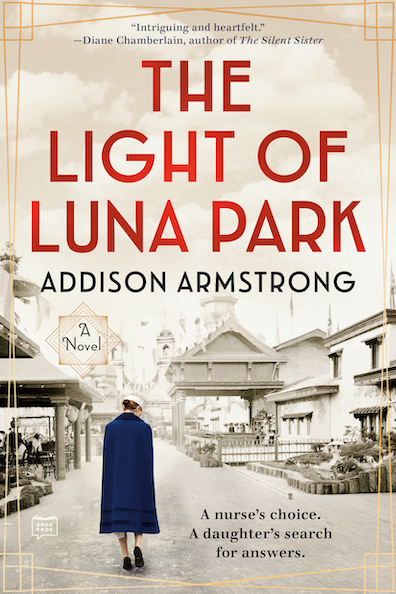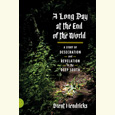A Long Quest
Charlie Peacock’s Roots and Rhythm surveys his multifaceted life in music
Charlie Peacock was present at the big bang of Americana music, which occurred in 1999 when producer T Bone Burnett recorded the music for the movie O Brother, Where Art Thou? at a famed Nashville studio, Sound Emporium. Peacock observed as David Rawlings and Gillian Welch recorded their parts for the film. Peacock’s analysis of his later work with Americana stars The Civil Wars and The Lone Bellow provides the intellectual underpinning for Roots and Rhythm: A Life in Music. His take on the music business moves in tandem with his autobiography, which documents a spiritual quest that continues to this day.
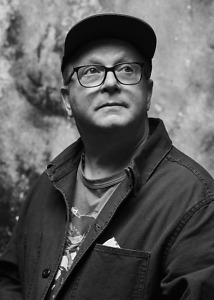
Peacock was also active in the California scene that produced another offshoot of American pop. Contemporary Christian music came out of the hothouse of 1980s Sacramento, where entrepreneurs like Mary Neely helped create a style that satisfied Christians in need of spiritual solace and pop fans who wanted an uplifting message. A talented keyboardist, songwriter, and producer, Peacock took the lessons he learned in the 1980s as part of the CCM movement and applied them to the business of hit-making in Nashville.
Peacock was born Charles Ashworth in 1956 in Yuba City, California. His parents came from Oklahoma and Louisiana, and he played his first shows in Yuba City with a band called Blind Horse, which took its name from a 1971 album by the English band The Faces, A Nod’s as Good as a Wink…to a Blind Horse. He played in Sacramento and on the West Coast, leading a band, The Charlie Peacock Group, that specialized in jazz-rock in the manner of King Crimson. (Peacock adopted his new surname after the jazz bassist Gary Peacock.)
Before he moved from Sacramento to Nashville in 1989, Peacock had finessed the nuances of the contemporary Christian music world. He’d declared himself a Christian in the early ‘80s, but he would eventually break with the tenets of Warehouse Ministries, the Sacramento-area church led by Mary Neely and Louis Neely. The confluence of rock ‘n’ roll, religion, and commercial ambitions at both Warehouse Ministries and Calvary Chapel Sacramento led to the formation of CCM out of the Jesus Movement of the late ‘60s and early ‘70s.
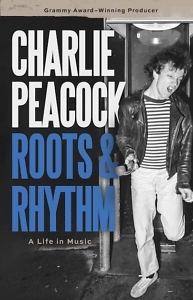 As Peacock tells the story, the idea of music ministry performed by itinerant musicians who led altar calls, or invitations for churchgoers to invite Jesus into their lives, provided the necessary backdrop for the creation of CCM. He writes, “Eventually, this music-ministry function in the church was monetized, and Contemporary Christian Music (CCM) (as a genre and industry) was born.” In fact, some of the early CCM-identified music, like The Seventy-Sevens’ 1982 Ping Pong Over the Abyss, sounds more like Elvis Costello than Christian music. Like Peacock’s ‘80s work in Sacramento, Ping Pong was released on Exit Records, another project of the energetic Mary Neely.
As Peacock tells the story, the idea of music ministry performed by itinerant musicians who led altar calls, or invitations for churchgoers to invite Jesus into their lives, provided the necessary backdrop for the creation of CCM. He writes, “Eventually, this music-ministry function in the church was monetized, and Contemporary Christian Music (CCM) (as a genre and industry) was born.” In fact, some of the early CCM-identified music, like The Seventy-Sevens’ 1982 Ping Pong Over the Abyss, sounds more like Elvis Costello than Christian music. Like Peacock’s ‘80s work in Sacramento, Ping Pong was released on Exit Records, another project of the energetic Mary Neely.
After moving to Nashville, Peacock meets singer-songwriter Steve Forbert, who makes the connections for him to begin performing at the songwriters’ emporium The Bluebird Cafe. He also co-writes a big hit, 1991’s “Every Heartbeat,” for Christian music star Amy Grant. The song is underpinned by a 12/8 shuffle that’s enhanced by keyboards, and the melody recalls the sound of a previous hit, Tears for Fears’ 1985 “Everybody Wants to Rule the World.”
Peacock describes meeting Grant at her Tennessee farm to pitch her the song:
I had entered a world not my own. There were lakes, an airplane, horses, barns, multiple houses, outbuildings, and several employees busying themselves. It was a serene, beautiful setting. But I was way out of my league and knew it. Yet, once I was greeted outside by a pregnant Amy Grant with no airs or pretension, my self-doubt faded to the shadows. Nope. I was right where I was supposed to be.
“Every Heartbeat” propelled Grant into pop stardom. The song itself is a virtuoso example of a through-composed pop hit, but the bass, drum, and keyboard parts are aural hooks brought to the composition after the song was written. As a superb example of the monetization of Christian music via pop, “Every Heartbeat” epitomizes the collaborative way of working that characterizes much of the commercial output of Nashville.
By the time the Americana duo The Civil Wars announced their breakup in 2012, Peacock was riding high as the producer of Barton Hollow, an album that garnered The Civil Wars two Grammys and defined Americana as a genre that could be both rootsy and glamorous. He went on to produce the follow-up, 2013’s The Civil Wars, and the debut album by another Americana band, The Lone Bellow.
On his own, Peacock released a sonically adventurous album of Christian-themed folk rock, 2024’s Every Kind of Uh-Oh. It’s the work of a polymathic intelligence that sees possibilities of pop music the rest of us might overlook.
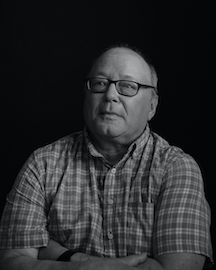
Edd Hurt is a writer and musician in Nashville. He’s written about music for Nashville Scene, American Songwriter, No Depression, The Village Voice, and other publications. He produced and played keyboards on The Contact Group’s 2021 album of 1970s covers, Varnished Suffrages.
